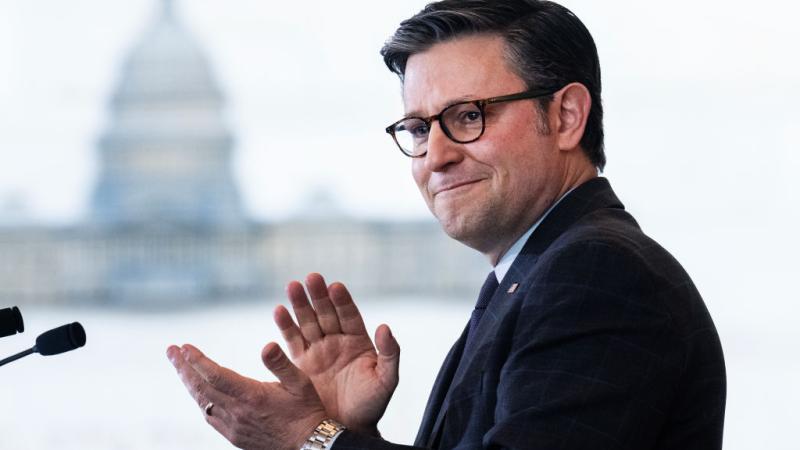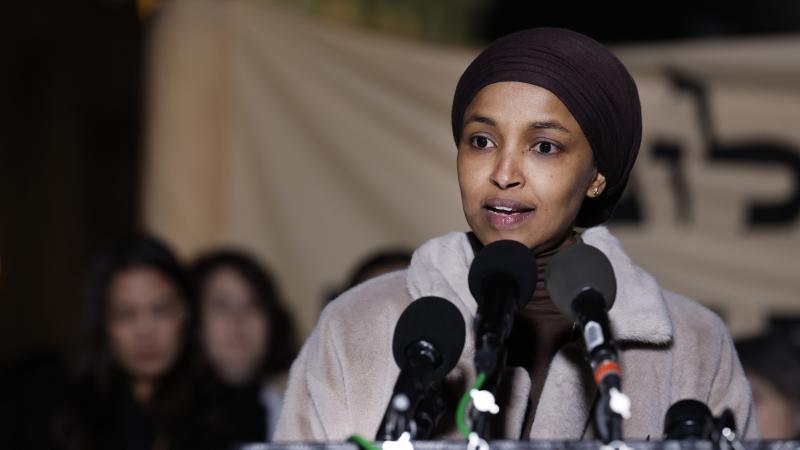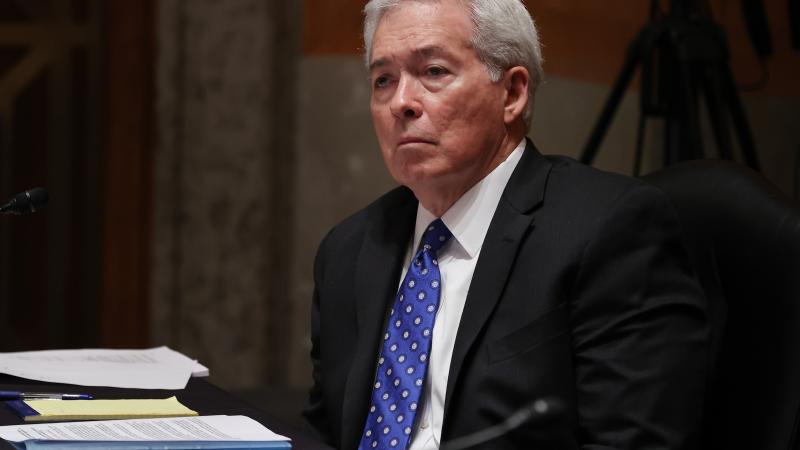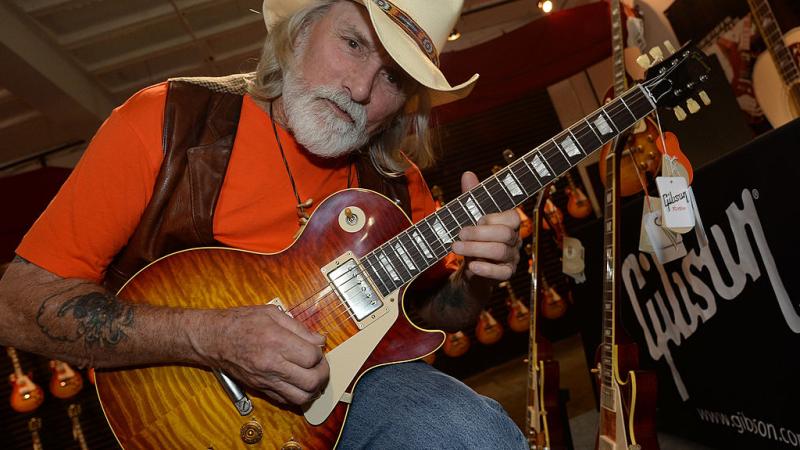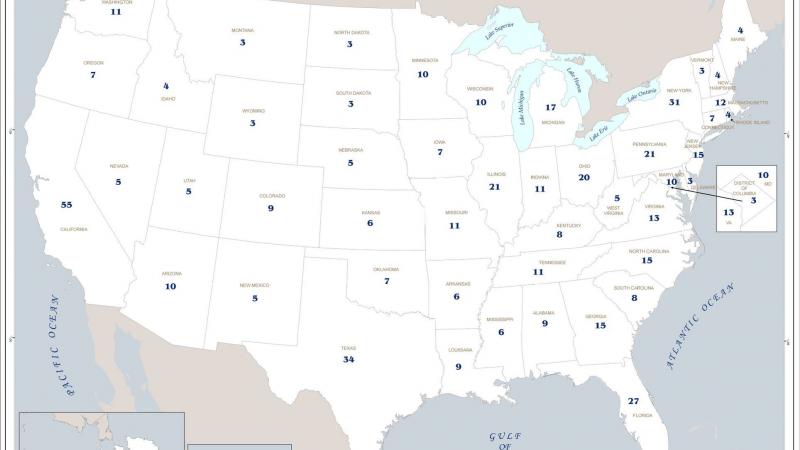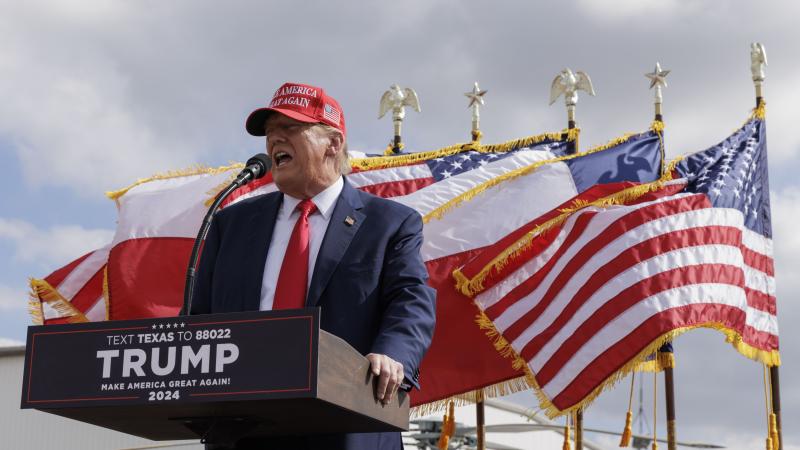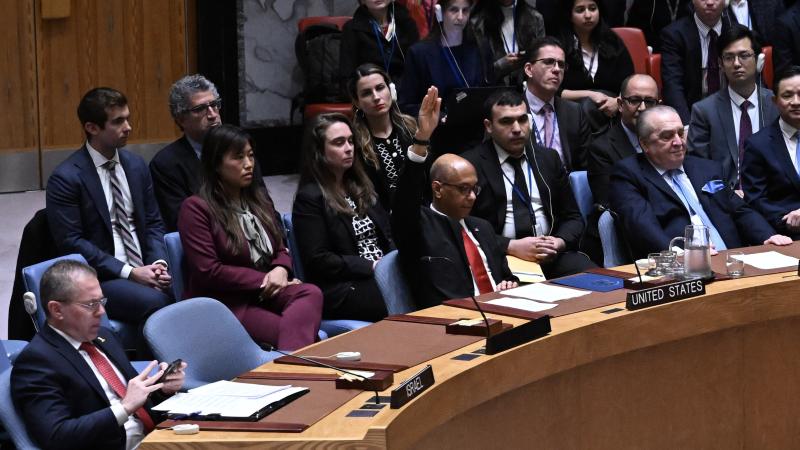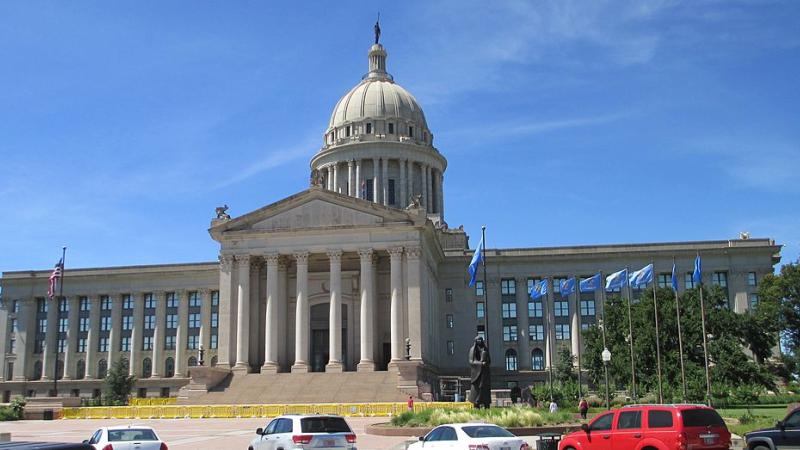Federally backed censorship machine raises separation of powers, election meddling questions
"I just need to find out how many people I need to name on lawsuits and the social media companies," Rep. Marjorie Taylor Greene says regarding DHS-supported partnership's possible actions against her campaign. Elections expert says censorship could "absolutely" qualify as in-kind contribution.
A federal agency-backed censorship machine that affected thousands of web URLs and millions of social posts during the 2020 campaign put a focus on some members of Congress and candidates for federal office, raising concerns about the separation of powers and election meddling.
Four House members, including Republican leader Kevin McCarthy of California and oft-censored Marjorie Taylor Greene of Georgia, and one Senate candidate are named in the after-action report by the Election Integrity Partnership, set up "in consultation" with the Department of Homeland Security's Cybersecurity and Infrastructure Security Agency (CISA).
The consortium of four private entities, led by Stanford and University of Washington research centers, mass-reported alleged misinformation for 100 days before the election and about two weeks after, targeting Just the News among other news organizations. It claimed a success rate of 35% for content removal, labeling and "soft-blocking."
CISA and the DHS-funded Elections Infrastructure Information Sharing and Analysis Center, as well as the State Department's Global Engagement Center and the Democratic National Committee, could also submit misinformation "tickets" through the consortium to tech platforms.
Interference in digital communications by lawmakers and candidates "absolutely" could qualify as in-kind contributions under the Federal Election Campaign Act, former Kansas Attorney General Phill Kline told the John Solomon Reports podcast.
He compared the federally backed consortium to "the private money that turned the urban core election centers into partisan campaign turnout centers" for then-candidate Joe Biden, and Michigan Gov. Gretchen Whitmer's COVID-19 restrictions on some freedom of assembly "while she marched" in Black Lives Matter protests.
"And this type of entanglement where government is communicating with oligarchs ... that makes the private sector a government actor," said Kline, who directs the Thomas More Society's Amistad Project.
Greene told the "Just the News Not Noise" TV show she is considering suing for infringement of her free speech both as a candidate and congresswoman-elect and working with other lawmakers to launch an investigation that starts with evidence preservation letters this month.
"I've already talked to an attorney ... and I'm owed damages," said Greene, whose personal Twitter account was permanently suspended in January for purported COVID-19 misinformation. "I just need to find out how many people I need to name on lawsuits and the social media companies."
She said "the Democrats are constantly attacking us about Russian collusion" while engaged in this "unbelievable conspiracy" involving the DNC and "private companies that could pick and choose whose posts and whose tweets were allowed to stay and whose got taken down."
House Homeland Security Committee member Kat Cammack (R-Fla.) told the podcast that the Energy and Commerce Committee will be "extraordinarily busy in holding Big Tech accountable" if Republicans win back the chamber and Rep. Cathy McMorris Rodgers (R-Wash.) becomes chair.
They will be looking at "where's the line drawn between a private company and a private enterprise, and the new public square, which these platforms have become," Cammack said. "People are going to see for the first time just how vast this entire operation of censorship" against conservative voices has been "and for how long."
The revelations show that "we've been so out of balance" on checks and balances in the federal system, where now the executive branch "essentially lord[s] over the legislative," as then-President Obama did with his "pen and phone" strategy, Cammack said.
"If Congress doesn't assert their authority," she said, "then what the heck are we doing? Why even bother having the representatives of the people in Washington D.C., if we're just going to have essentially a one-man show playing out in Washington?"
The consortium report doesn't spell out exactly the results it got against lawmakers and candidates.
"Greene leveraged multiple social media platforms simultaneously to spread Stop the Steal messages and promote herself" in her successful House race, including through a petition that "redirected to a donation page," it says.
The report puts scare quotes around Greene's use of the term "censored" to describe what the consortium calls her tweets being "labeled as disputed and possibly misleading."
Such labels have been "weaponized to make the case that platforms allegedly have political agendas," and account removals portrayed as efforts to "cover up the truth," which contributes to "meta-misinformation about the intentions of the platforms."
It cites McCarthy's June 23, 2020 tweet about Twitter censoring then-President Trump for saying "people should stop breaking the law" — an apparent reference to the riots that followed George Floyd's death — to illustrate this "techlash" against platforms for their "policy interventions."
Rep. Paul Gosar (R-Ariz.) is cited for sharing a Project Veritas video about Rep. Ilhan Omar's (D-Minn.) connection to a "cash-for-ballots harvesting scheme" within 15 minutes of the investigative journalism group's founder James O'Keefe posting it.
Because Donald Trump Jr. separately posted the video a few minutes later, "this suggested that the Trump campaign may have had access to the video before the general public, raising questions of coordination," the report says.
It portrays Rep. Mike Kelly (R-Pa.) as especially dangerous because he filed a lawsuit against the state's mail-in voting law based on "unsupported claims that had circulated throughout online communities." The suit would have invalidated "over two million Pennsylvania ballots" if it hadn't been thrown out in court.
Finally, the report devotes several discussions to Senate candidate Shiva Ayyadurai, who made "compilation videos" that were widely shared in tweets about election fraud and whose arguments were used in lawyer Sidney Powell's "Kraken" lawsuit to overturn Georgia's election results.
After his failed primary campaign, Ayyadurai promoted a "conspiracy theory that computer tabulation systems systematically switched votes in favor of his opponent." He also posted a "fraught analysis" that "fed into misleading narratives about Dominion voting software" and "switched votes."
Former Tennessee congressional candidate Robby Starbuck, who lost a legal battle to stay on the state GOP primary ballot, shows up in the report's section on "repeat spreaders of election misinformation" on Twitter.
In a statement to Just the News, he said the "Orwellian named" consortium smeared him shortly before Twitter and Instagram imposed a "search ban" so people couldn't find his accounts in the thick of his campaign, while "thousands" of users told him "those platforms forced their accounts to unfollow me."
"This illegal, political action by the Federal government to interfere in an election and stop a candidate they fear is unprecedented in American history for a Congressional race," Starbuck wrote.
"My family came from Cuba, where communism resulted in enemies lists being made by the elite to target those they feared the most, government using every means available to silence the opposition — economic ruin, fraudulent elections, a central committee that removed candidates from the ballot, total Marxist control of the media, academia and every pillar of culture," he said. "I ask the American people now: What's different in America today?"
The consortium didn't respond to queries about whether it alerted social media companies to posts by the four members of Congress and Senate candidate, or whether anyone from the federal government, DNC and the other liberal organizations with "ticket" privileges — NAACP and Common Cause — had contact with the consortium or filed tickets about them.
It also didn't answer if and how the tech platforms responded to the consortium's own misinformation reports and those it facilitated, and how that might implicate the separation of powers.
The Facts Inside Our Reporter's Notebook
Links
- federal agency-backed censorship machine
- after-action report by the Election Integrity Partnership
- targeting Just the News among other news organizations
- personal Twitter account was permanently suspended
- then-President Obama did with his "pen and phone" strategy
- lost a legal battle to stay on the state GOP primary ballot


